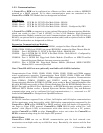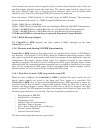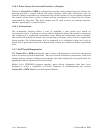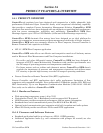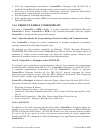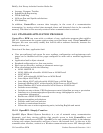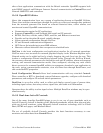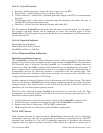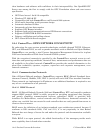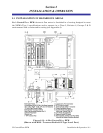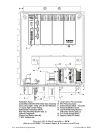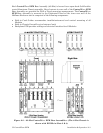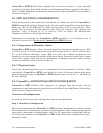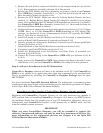1A-6 / Product Features & Overview CI-ControlWave EFM
class hardware and software with confidence in their interoperability. Our OpenBSI OPC
Server was among the first to comply with the OPC Foundation alarm and event server
specification.
OPC Data Access 1.0a & 2.0 compatible
Windows NT, 2000 & XP
Compatible with both ControlWave and Network 3000 systems
32 bit multi-threading, multi-processor design
Automatic database builder
Integrated real-time data monitor
Supports OPC Browse interface
Supports both serial communications and IP Ethernet connections
Supports COM/DCOM & OLE Automation
Primary and Background polling scheme
OPC Alarm & Event Server support
1A.4 ControlWave OPEN NETWORK CONNECTIVITY
By embracing the open system network technologies available through TCP/IP, Ethernet,
OPC, and Microsoft DNA, as well as pseudo standards such as Modbus and Open Modbus,
ControlWave can provide a total Process Automation Management Solution for in-plant
LAN based networks and Wide Area Network SCADA systems.
With the exceptional connectivity provided by the ControlWave network, access to real-
time data and operating conditions, historical data, maintenance and performance data are
all available to the global network. ControlWave provides the needed information to the
plant floor technician, operator, engineer, supervisor and corporate management, even
external customers.
1A.4.1 Communication Protocols
Like all Bristol Babcock products, ControlWave supports BSAP (Bristol Standard Asyn-
chronous Protocol), Modbus, DF1, DNP 3 (serial) and serial ASCII as standard functions.
These protocols are implemented in Flashware so no additional hardware is required to use
any one or a combination of all protocols.
1A.4.1.1 BSAP Protocol
BSAP - All Bristol Babcock Network 3000 and ControlWave RTU and controller products
support BSAP protocol. BSAP is widely accepted as providing exceptional data integrity
and greatly simplifies communication between controllers. BSAP is provided with
interfaces for Master/Slave, vertical networks and Client/Server, horizontal networks. In
either case, variable lists are created in each controller that are easily passed from server to
client or slave to master.
BSAP meets the definition of an industry-standard, open architecture protocol because if
conforms to ISO standards 2629, 1745 and 2111, it is not proprietary in that Bristol
Babcock does not charge a license fee and makes the protocol and documentation available
to anyone.
While BSAP is an open protocol, the added functionality of the messages provide much
more capability than is found other networks.



